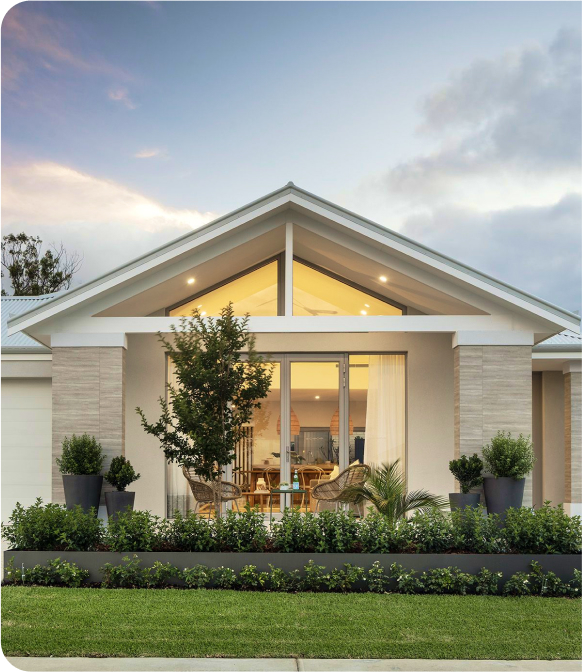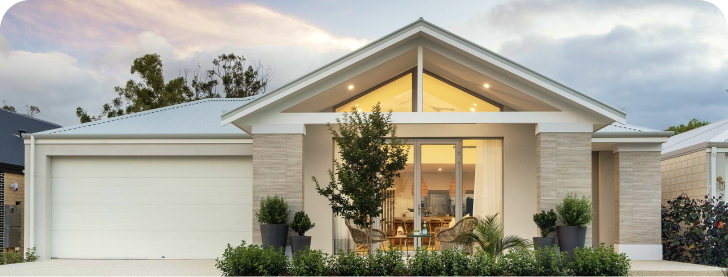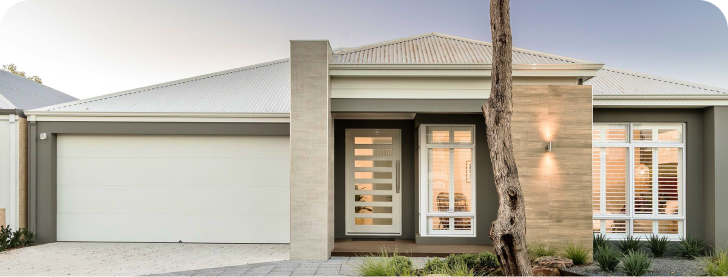
If you decide to build a new ADU on your site, it can change your life. It can bring its quality to a new level, create ideal conditions for all family members, from the youngest to the elderly, as well as acquire additional storage areas and space for hobbies. On par with this, these accessory housing units built in your backyard can bring additional income.
The main way to generate income is by renting out your ADU to tenants. In order for all parties of the agreement to be satisfied, it is necessary to provide comfortable and, most importantly, safe and private conditions for renters.
In this review, we will focus on the insurance features of protecting your tenant, tell you which rules and local laws it is necessary to follow when applying for insurance. We will also share useful insiders about what benefits of insurance for rental units brings landlord and his tenant.
The main method of protecting tenants is the registration of insurance, which covers the costs of solving a variety of sudden problems. However, many homeowners do not understand this point and think that if they have taken out insurance for a primary home, then for rental ADU, this procedure is not mandatory, but it actually is. ADU is an independent residential unit, for which you need to pay separate property taxes and for the construction of which completely different state laws apply; respectively, you need separate insurance.
There are several insurance programs, namely, insurance against natural destruction, e.g., floods, fires, or tornadoes, insurance in case of theft or burglary, as well as liability insurance, which we focus our attention on in this review.
Force majeure happens regularly in our lives, and no rules of statistics or probability theory will help you calculate the moment when they happen. Most often, force majeure occurs as a result of an accidental mistake; for example, during repairs, you can flood neighbors or in completely unpredictable situations when your dog attacks a person and gnaws their new shoes. With this scenario developing, liability insurance comes to the rescue, which is also applicable in the case of a rental property contract.
We will talk about the use of liability insurance in relation to tenants in the next section, but for now, here are a few other examples that are related to rent control:
On the whole, local ordinances in relation to the main house and accessory living unit are different. So, a working person with a lot of household and family worries may, by pure chance, miss one of the aspects, especially if he is not in constant contact with a lawyer. Fortunately, if you have good liability insurance for your rental property, this will not be a problem.
We have analyzed situations when disputes arise between homeowners and local authorities; however, even more often, insurance is needed in solving problems with tenants.
If property owners do not want to spend money and want to avoid financial proceedings with renters, then liability insurance can be issued in the following way:
The most common case is when tenants cause damage to furniture or any other components of the living space, for example, a burnt wall in the kitchen or a flooded bathroom floor. Sometimes repairs can be built as a small ADU construction. However, liability insurance will cover all costs.
Almost every room in the accessory living unit has places that can cause injury, for example, a sharp corner of furniture or a slippery floor. In such a situation, the landlord needs to pay compensation. However, the total amount will be significantly reduced or fully covered if you have liability insurance.
If disputes regularly arise between the property owner and tenant regarding the timely payment of housing, then sooner or later, this will lead to litigation. This is because, very often, there are malicious violators who do not pay and do not want to leave the rented ADU. In such cases, you will not need to spend money on each new court session because you have insurance.
According to Federal Fair Housing laws, homeowners undertake to treat all tenants equally and without prejudice. However, there are often situations when people still find grounds to appeal to the authorities on this issue, even though there is no fault of the property owner. In such a rut of events, there is a need to consult with a lawyer or any relevant specialist, the expenses for which will be covered by insurance.
Overall, liability insurance is a very useful article recommended to include in the rental application to all landlords without exception because, in case of unforeseen circumstances, this insurance will prevent a blow to your budget.
Speaking in a sporty manner, liability insurance is the last defender who can protect you; however, in order not to bring to this measure, landlords can take several effective steps to create comfortable and safe conditions for tenants. Firstly, to forget once and for all about courts with local governments, arrange the construction of ADU and rental agreement in accordance with all local laws and building codes.
Secondly, a huge number of single-family homes are built, taking into account the principles of universal design to minimize the risks of domestic injuries. You can also provide your renter with similar amenities.
Finally, in order not to lead to proceedings, treat the tenant screening process with due responsibility. Conduct credit history and background checks of your potential tenants. This step will help the landlord not only to verify the personal qualities of the person to whom he will entrust the accessory dwelling unit in residential use but also help to get rid of a lot of potential problems.
Insurance can bring many benefits in unpredictable situations. However, there is no single program for all properties. In this regard, every homeowner who wants to provide rental space for a potential tenant should take into account several factors. In particular, square footage of living space, because the insurance conditions for multifamily properties, single-family homes, and accessory dwelling units are very different. It is also necessary to take into account the history of your city because factors such as proximity to industrial facilities, railway, and criminal rating can also play a role.
In addition, in order not to offend your tenants, arrange insurance in such a way that it benefits not only you but also protects those who live in the ADU next to the main house.
When you have found a perfect tenant, it is not enough just to allocate him a place to stay and take a rental fee.
Each property owner bears legal responsibility and is accountable for the consequences of a person's residence on its territory:
A property owner knows that when building a new ADU, you cannot do without the help of a lawyer because you can easily miss one formulation in state law, which will lead to bans, fines, and restrictions.
The same applies to rent control, and in this case, it is advisable to cooperate with specialists from the property management company:
In sum, most of the processes that accompany the rental process and all the stages of drawing up an agreement between landlord and tenants will be simplified if you choose to cooperate with a property management company.
Registration of insurance for a part of house owners is associated with unnecessary expenses. Conditions of the need to spend money on property taxes and utility bills complicate the process of returning investment in the construction of an accessory housing unit. However, from the point of view of such factors as mental peace, security, and, most importantly, the costs of potential repairs in the case of property damage, liability insurance is a profitable solution. Every successful landlord knows that insurance costs offset any risks that could lead to even greater financial losses.
At the same time, the search for good tenants not for short-term rentals but for long-term cooperation allows you to earn much more.
The very important and, on par with this, the most unpleasant consequence of non-registration of insurance is large financial losses. For example, if your tenant is injured and you do not have insurance, then you will have to cover moral and physical harm. In addition, your reputation will be damaged, as well as your relationship with the authorities, if they will find any violations after such an incident. However, the problems may not end there because your house and ADU may be marked as unreliable on housing search apps, while this information may spread outside the city.
The chain of consequences can be continued for a long time, and all this leads to two main thoughts. Firstly, you can not skip the registration of insurance. Secondly, when you settle a tenant in your ADU, you take responsibility, which means you need to create comfortable, safe, and private living conditions.

Each homeowner develops his own strategy for building relationships with tenants, and usually, this experience is formed over the years. However, if you are a beginner, then a few universal tips will come in handy. First, get the necessary insurance that meets your requirements and the needs of your tenant. Secondly, create such conditions in the house that the risks of accidental fall, burn, bruise, and any other injury are minimal. Thirdly, draw up a lease agreement according to the letter of the law of your city without violating the rules of short-term rentals and the maximum area of rental housing.
Finally, do not hesitate to ask for help from specialists on all issues because it is better to spend a little money on a consultation than to pay large fines and penalties.
The main advantage of liability insurance is that in case of force majeure, which may entail the cost of repair or restoration of moral and physical damage. You do not have to spend money out of your pocket because insurance will cover everything.
In addition, when applying for insurance, your tenant will have a sense of trust, which will positively affect your relationship with him.
The first step in minimizing risks is a careful selection of potential tenants in search of responsible candidates. Conduct previous address, background, and credit information checks, talk to people, and discuss all the conditions in as much detail as possible, especially with regard to the situation when rent increases. Also, exclude all potentially dangerous items from the house and also arrange the renting process in accordance with the law so that there are no claims against tenants.
Of course, the most important factor that attracts absolutely all property owners is the opportunity to receive passive income. However, in addition, if you rent out the ADU, you can return all investments invested in construction much faster!











